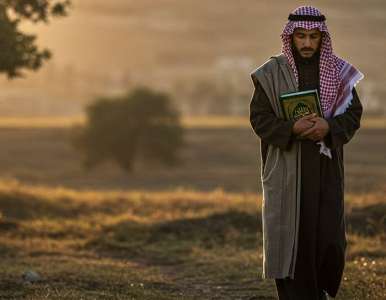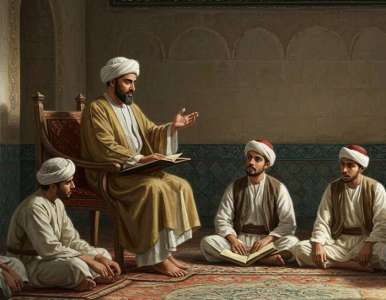This is the title used by the preacher Muhammad Al-Ghazali for a book in which he examines the conditions of Muslim women within their society and circumstances, and the confusing manifestations that blurred the line between the sacred and custom, each taking on the role of the other. Those who study the life of the best generations find that social life was natural, integrated, and harmonious within the Islamic educational framework. The duality between men and women appears only in exceptional cases, which can be considered educational matters destined by God to clarify the roles of men and women and the necessity of guidance.
However, when Islamic education declined and religious knowledge weakened, social customs dominated and replaced divine teachings, and tribal mentalities replaced prophetic education, this duality emerged strongly. It continues to affect Islamic reality, reaching extremes that deprived women of education, culture, mosque worship, the duty of enjoining good and forbidding wrong, testimony, financial independence, inheritance rights, and participation in jihad.
Sometimes this is justified in the name of protecting women’s honor and chastity, and sometimes in the name of the corruption of the age and widespread temptations—as if their educational role could be fulfilled while they remain ignorant of life and the era in which they are supposed to raise their children. How can they fulfill an educational role and produce life models they do not know? Education seems to require ignorance, stupidity, and idleness, reducing their role to cleaning the house and caring for the child rather than true upbringing. Some act as if they are more concerned for women than God, who ordained their roles, aware of changing circumstances, corruption, and righteousness.
The danger lies equally in suspending or nullifying certain rulings and Islamic teachings under the pretext of protecting women from corruption, as in outright ignoring Sharia laws, claiming they are unsuitable for this time. I believe both behaviors stem from the same mentality, though their directions differ.
I assert that the failure of the educational process and its corruption within the sphere of women has a more significant and dangerous impact than among men. Women, whom we claimed to protect, were neglected; we failed to defend them, and only realized too late to send them to educational institutions, where educators were trained outside the Islamic framework.
All this happened in the name of religion. Many historical incidents in the Prophetic biography and the Rashidun Caliphate, if repeated today, would provoke dangerous consequences by the ignorant, with bloodshed justified as “protecting women.” Among the severe consequences affecting contemporary Islamic revival movements: the multidimensional personality of women, as shaped by the Prophetic biography, was never fully realized. Women did not occupy their proper place in Islamic institutions—as emigrants, poets, fighters, enforcers of good, and preventers of evil. They remained confined to narrow margins, isolated from the mainstream of the Islamic movement, unable to free themselves from social traditions conflated with religious concepts. Consequently, women’s humanity was not fully restored within the framework of Islamic teachings.
Islamic movements focused more on defending women’s image than on developing their personalities, training them for Islamic life, and showcasing them as exemplary models. Women remained largely dependent—on husbands or brothers who dictated Islam for them.
We must acknowledge: the reality of women in the homes of preachers and Islamic activists often did not differ from other homes, except superficially—except for God’s mercy. Social customs and cultural inheritances were the same, even if titles differed or religious knowledge varied. The pre-drawn path for Muslim intellectual activity, imposed for decades, did not take it beyond defensive thinking focused on form over substance. Hence, the battles over hijab, polygamy, divorce, and inheritance dominated, exhausting energy and controlling thought.
We still dwell in these areas, unable to move to active roles in properly building the Muslim woman, which requires covering, adherence to God’s law, Islamic teachings, and liberation from traditions imposed under the name of Islam—many of which are contrary to it. We must be honest: educational, psychological, and social suppression continues in more modern and subtle forms. Unless education can overcome obstacles, restore women’s rightful roles, enlighten them to their divinely ordained responsibilities, and grant them what Islam provides socially, the imbalance will persist, entrenching backwardness in the name of religion. Women will remain deprived of their essential educational function.
It is imperative that Islamists lead the effort to liberate women, break the chains imposed by tradition and distorted social inheritance, and organize conferences to ensure women do not remain gaps and disabled limbs in the Islamic body, exploited by advocates of moral decay under the pretext of “liberating women.” Even today, God grants women, but humans still impose restrictions.
Rami Muhammad Al-Dalati
10 January 2010



